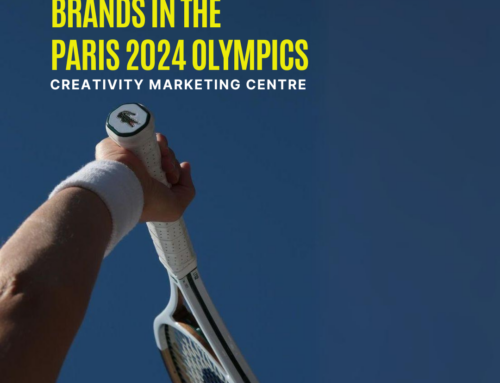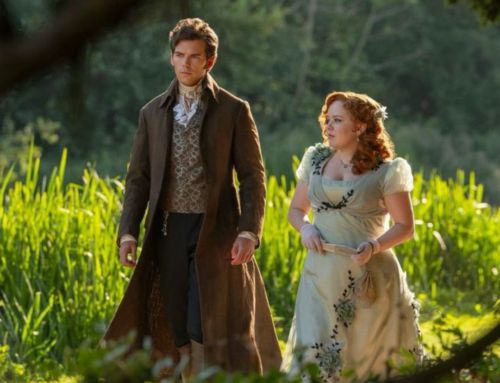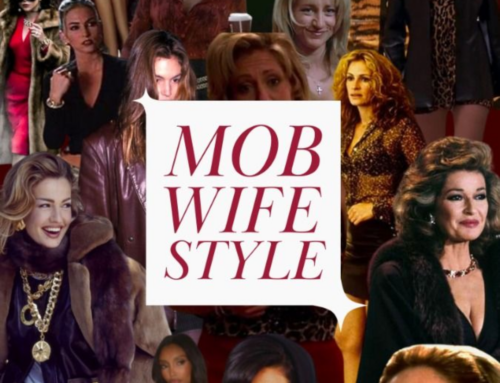Career Spotlight: Msc in Marketing & Creativity Alumna, Arita Celma

Retail in the Digital Age, Creativity Marketing, and Travel
Arita Celma graduated from the MSc in Marketing & Creativity in 2011. Here she talks to us about how the retail industry stays fresh in this digital era, and how her many life experiences have fuelled her creativity in an exciting career. She currently lives and works in London.
Please tell me about your career path since graduating from the MSc in Marketing & Creativity (MMK)?
 Straight after the MMK, I joined the creative consultancy Good pilot as an Account Planner. Sadly, the agency no longer exists, but its co-founder Pierre Humeau has set up a new and already successful agency RE_UP with Laurent François. Good pilot consisted of a team of creative and strategic thinkers who believed that a big creative idea could grow across every type of media platform, manifesting itself a teach touch point into engaging content that would interact with the consumer in a collaborative way. Whilst at Good pilot, I was responsible for insight generation, strategic narrative development for clients (such as L’Oréal Professional and Lutron) and trend analysis -monitoring market and social trends such as ‘Near Field Communication as a Marketing Tool’ and their future impact on consumer behaviour.
Straight after the MMK, I joined the creative consultancy Good pilot as an Account Planner. Sadly, the agency no longer exists, but its co-founder Pierre Humeau has set up a new and already successful agency RE_UP with Laurent François. Good pilot consisted of a team of creative and strategic thinkers who believed that a big creative idea could grow across every type of media platform, manifesting itself a teach touch point into engaging content that would interact with the consumer in a collaborative way. Whilst at Good pilot, I was responsible for insight generation, strategic narrative development for clients (such as L’Oréal Professional and Lutron) and trend analysis -monitoring market and social trends such as ‘Near Field Communication as a Marketing Tool’ and their future impact on consumer behaviour.
Fast forward to 2012! after working in advertising for almost six years, I decided it was time to explore the client side and joined the L’Occitane group – a global, natural and organic ingredient-based cosmetics and well-being products retailer. Today, I look after the L’Occitane UK retail channel as the Retail Marketing Manager. With 14 campaigns on average a year, numerous new product launches in an increasingly more competitive marketplace, it’s a challenging but exciting role to be in.
It’s fascinating to see how the retail landscape is evolving as a result of the digital era we live in. Consumer behaviour is changing rapidly, and although money is increasingly being spent more online, the demand for a physical store has not changed. What has changed is consumer expectation for the experience it should offer. It’s really all about creating an interactive, personalised service in a collaborative space where the brand can be experienced through all the senses.
That said, after four years in the beauty industry, I must admit I still believe in this quote by Salvador Pániker: “Better than a facelift, to stay young we need to be permanently in a state of intellectual curiosity.”
Aside from L’Occitane, is there a brand you think has succeeded in incorporating interactiveness and making retail fresh in this digital age?
To a certain extent, luxury retailers are still the leading force for embracing the digital innovation in-store. It’s worth paying a visit to Regent Street in London, which has become a great showcase of amazing retail innovation. Live streaming of events in store, digital interactive walls that show matching animation, behind-the-scenes content when picking a product, iPads in changing rooms allowing shoppers to take selfies and share them on social media, and digital billboards that stream real-time trends emerging during London Fashion Week: it’s all there. The boundary between digital and physical is fading and leaving room for a new more intuitive, intelligent and interactive retail space.
Shops to visit: Burberry, Karl Lagerfeld, Jo Malone
Is there a campaign/project you were involved with that you are particularly proud of?
Whilst working at Good pilot, I had the opportunity to join the team behind an incredibly inspiring and collaborative art project/campaign called ‘Ghosts of Gone Birds‘, which raised money and awareness for Bird Life International’s Preventing Extinctions programme. The project raised a creative army for conservation through a series of multimedia exhibitions that breathed artistic life back into extinct bird species, celebrating their diversity through paintings and sculpture, talks and poetry, installations and live music. We got over 120 artists (Sir Peter Blake, Charming Baker, Billy Childish and Rob Ryan to name a few), writers and musicians to contribute to the project. Each adopted an extinct species and revived it through his or her creative talent. The result was a creative collection of “Gone Birds” being showcased throughout England. The show in London at the Rochelle School Gallery was featured across key press, including the Creative Review, The Guardian, Financial Times, and the BBC, generating free PR coverage worth over £300K.
Donations and a percentage of the profits from the sale of the original art and prints went directly to help frontline conservation projects fighting to save the lives of endangered birds around the world.
This is a great case study on how fundraising approached in a creative way can achieve so much more than just raising funds. It’s about building a like-minded community and raising awareness through content that speaks to a wide range of people.
What’s the most useful piece of advice you’ve received when it comes to your career?
“Question everything!” – advice given by Dave Trott when signing my copy of his book ‘Predatory Thinking. A Masterclass in Out-Thinking the Competition’.
What advice would you give to yourself just after graduating from the MSc in Marketing & Creativity?
Build a career on your terms and start your own business on a matter you care about. There has not been a better time in our history to become an entrepreneur.
Are you planning on starting your own business in the future?
I don’t know what the future holds, but I know I would love to embrace this challenge.
Whom do you consider to be your influencers? What websites/blogs do you regularly check?
I’m influenced by anything from an interesting discussion, a talk, or a book. Apart from regularly reading Marketing Week I find my inspiration in blogs and events not directly linked to marketing. A quick round-up of my weekly Feedly (great way of keeping all blogs/ websites in one place) reads would include:
- Wired: stories, people and ideas that are changing our day-to-day
- Now ness: a video channel premiering the best in global arts and culture across Art & Design, Culture, Fashion & Beauty, Music and Food & Travel
- Vice News: an ever-expanding nebula of immersive investigative journalism
- It’s Nice That: a design blog- Ideas, originality, imagination and creativity in any context
- For those living in London I would recommend ‘Nicer Tuesdays‘, a monthly event curated by It’s Nice That bringing together a selection of speakers for short sharp insights around a chosen theme
- L2: A think tank for digital innovation (member-based business intelligence firm that benchmarks the digital performance of brands)
- Trend Hunter: the world’s largest collection of trends, innovation keynotes fuelled by 176,000 insatiably curios people
- Kehko: lately I’ve become more interested in CSR and Social Enterprise, and Kekho is a great resource for social enterprises around the world.
How has travel influenced you? Has it made you more creative? Do you see that carrying through to your job?
I am currently reading a brilliant book called ‘Curious’ by Ian Lesley. It’s a fascinating look at human curiosity, our extraordinary capacity to take pleasure in discovering, learning and understanding. At one point in the book, Lesley quotes the influential French Renaissance writer Michel de Montaigne who described travel as a way with which to ‘rub and polish’ one’s brain. I always find travel mind-opening, inspiring and a way to get productively distracted. It definitely feeds my creativity. The more unpredictable the environment, the more I’m creatively stimulated.
My love for frequent travelling has often helped me encounter anew situation or idea either for my job or my personal life; one of the most recent ideas being to take part with a friend in Uganda International Marathon in June, 2016. The project supports United Nations Global Goals for Sustainable Development through setting up new community-based projects in the Masaka region, helping them to become self-sustainable in the long run. We have opted to support the Uganda Marathon Youth Finance Scheme and launched a fundraising project #pair4idea in early February. The scheme will support young professionals in starting up their own businesses by providing training, linking with mentors and giving the first loan needed to get their business ideas on the road.
How did the content of the MSc in Marketing & Creativity help you in your career?
Studying case studies of businesses from around the world through interactive discussions in a class of students with 18 nationalities helped me gain an international perspective and the ability to quickly adapt in such an environment. This has been key when working for a global brand.
The focus on innovation and collaboration has helped me come up with better marketing ideas that reflect and address today’s consumer needs.
It also gave a great knowledge base for CRM and Digital Marketing.
Inspired by Arita’s story? Curious about how ESCP Business School and its Marketing and Creativity programmes helped Arita apply her life experience to her job successfully? Find out more:





